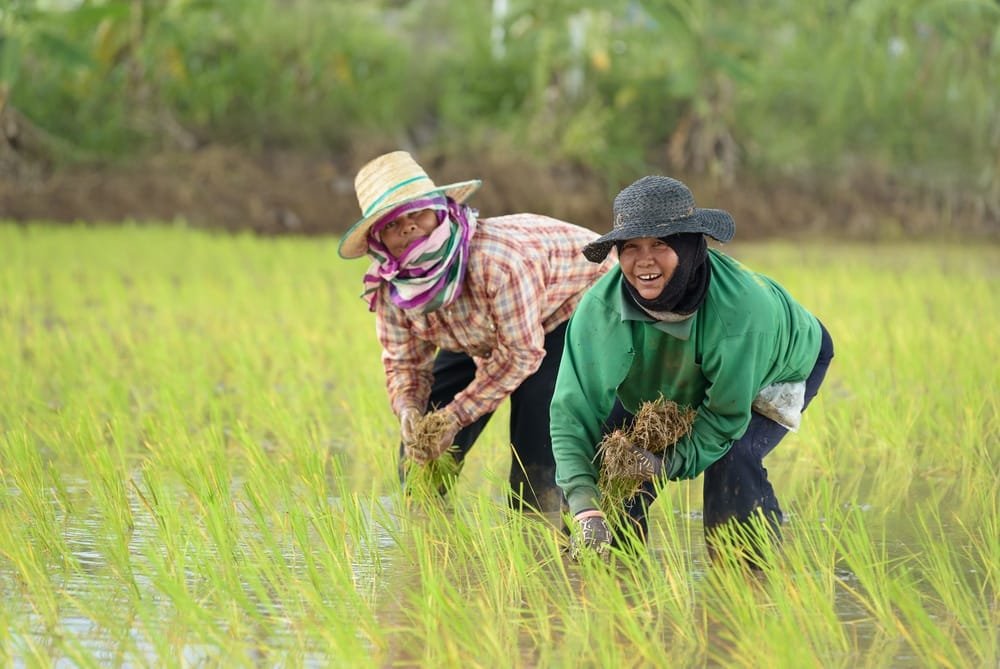The country marked a milestone in sustainable agriculture with the formal launch of its largest solar-powered irrigation system in June 2024.
President Ferdinand “Bongbong” Marcos Jr. inaugurated the Cabaruan Solar-Powered Pump Irrigation Project (SPIP) in Quirino, Isabela—an initiative to ease irrigation costs and strengthen food production.
The pioneering project, among the country’s earliest and most expansive of its kind, will deliver solar-driven water supply to 350 hectares of rice fields, benefiting around 237 rice farmers in the region.
During the event, President Marcos described SPIP as part of a broader government strategy to revitalize the agriculture sector. He said the project reflects the administration’s commitment to addressing long standing farming challenges, particularly those intensified by the country’s vulnerability to natural climatic patterns.
“In the past, we used oil-powered machines to channel water from irrigation canals to your farms,” he said in his speech in Filipino. “Now, we’ve made this easier by using electricity harnessed directly from the sun. Since solar power is free, we can now offer free irrigation as well.”
(Also read: MGreen Launches 19-MW Solar Facility in Nueva Ecija)
A pioneering endeavor
The National Irrigation Administration (NIA), through the Magat River Integrated Irrigation System (MARIIS), spearheaded the development of the Cabaruan SPIP project. Built between July 2023 and February 2024, the initiative came at a total cost of ₱65.77 million and represents a significant investment in sustainable water infrastructure.
As the pioneering SPIP system built directly over an existing canal, the Cabaruan project set a new standard in agricultural infrastructure. This innovative design spared farmers from giving up portions of their land. With 1,056 solar panels, it also stands as the largest installation of its kind in the country.
The setup delivers 739,200 watts of solar-generated power to run two high-capacity submersible pumps, each discharging 12,800 gallons of water per minute. It complements NIA’s recent rollout of 15 additional solar-powered pump irrigation projects and two small-scale irrigation initiatives across the region.
The combination of these initiatives has the potential to irrigate 251 hectares of farmland and support around 867 farmers, according to President Marcos. He noted that these efforts are among 62 solar-powered pump irrigation systems established across the Cagayan Valley region.
The SPIP has also expanded to the Bicol region, where it will cover 71 sites spanning 1,810 hectares. Ako Bicol Party-list Rep. Zaldy Co expressed strong support for NIA’s solar irrigation initiative, which is set to benefit approximately 4,560 farmers in the area. As chair of the House Committee on Appropriations, Co highlighted that the project’s total investment amounts to ₱1.5 billion.
“With the availability of water during the dry season, we can expect an estimated additional income of ₱140 million every year for our farmers,” he stated.
According to Co, the project prioritizes focusing on areas that predominantly depend on rainfall for irrigation, restricting farmers to only a few planting seasons annually. The introduction of the solar initiative, however, is expected to enable more frequent planting cycles, supporting the government’s objectives of achieving self-sufficiency and strengthening food security.
(Also read: Cagayan Valley Launches Eco Cooler to Cut Crop Waste)
Boosting the agricultural sector
President Marcos emphasized that agriculture remains the cornerstone of his administration’s agenda. He highlighted the government’s commitment to achieving self-sufficiency in agricultural production, aiming to prevent disruptions like those experienced during the COVID-19 pandemic from affecting the country’s food supply in the future.
With the SPIP, farmer-beneficiaries can reduce their electricity and fuel costs by relying less on powered pumps, while benefiting from a steady water supply that boosts agricultural productivity.
“Our farmers are the backbone of our economy,” Co stated, then added in Filipino, “It is important that we provide them with the equipment and resources they need to grow and strengthen their food production. This project not only boosts agricultural productivity but also improves the socio-economic status of our farmers.”
Irrigation plays a vital role in the Philippines’ agricultural sector, particularly because the country is vulnerable to various natural disasters and climate events. For instance, the recent El Niño season caused farm losses amounting to ₱9.89 billion as of May 2024.
Progress through infrastructure and innovation
The Cabaruan SPIP is not just a breakthrough in sustainable farming—it also reflects the Marcos administration’s broader push for strategic infrastructure development to drive long-term economic growth. From roads and bridges to energy and agricultural systems, these projects form part of a comprehensive effort to modernize essential services and strengthen the country’s productivity.
As highlighted in the “PBBM Podcast” on infrastructure and economic development, President Marcos has consistently underscored that inclusive growth can only be achieved through stable, affordable, and reliable energy—especially in key sectors like agriculture. Projects like the SPIP exemplify this principle in action: empowering communities, improving livelihoods, and building the foundations for a more resilient and food-secure Philippines.
Sources:
https://www.sunstar.com.ph/manila/marcos-inaugurates-phs-first-solar-powered-pump-irrigation-project
https://www.facebook.com/watch/?v=1040724554685561&rdid=kgJHu3ueBj0Oj3VY

